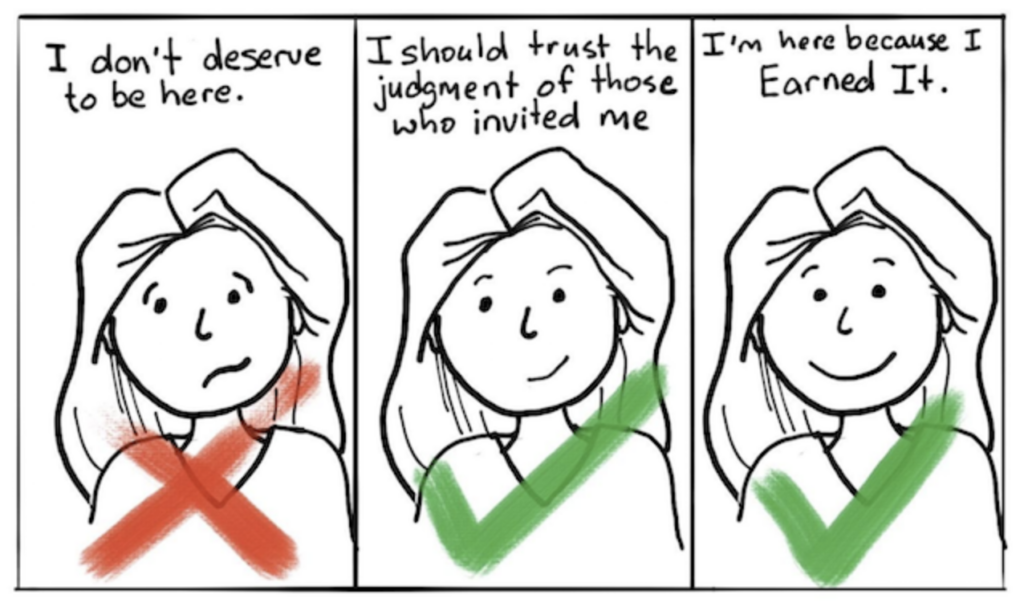
You have probably heard people talking about Imposter Syndrome, or you may be familiar with this term already. This short TED Talk explains what it is and why people can feel it.
Imposter syndrome is very common, but we don’t talk about it much. At RCS you will meet lots of talented and hardworking artists (yes, you are one of them!) and it can be easy to compare yourself to others. The likelihood is that lots of your peers will be feeling this way too or have times when they don’t feel like they are good enough.
The following tips may be useful to consider and help you to deal with it:
1. How you see yourself is different to how others see you
Remember that your own perception of yourself is based on lots of different factors, and usually not on how other people perceive you. Even when your confidence feels low and you feel like you don’t fit in, other people will be seeing you in a completely different light.
2. Remind yourself of everything you have accomplished
To have been offered a place at RCS is a huge accomplishment, and there will have been other ones along the way. Try to focus on experiences when you have felt confident and proud, and recognise that you put in hard work to achieve these.
3. Avoid comparing yourself with other people
Everyone is on their own journey. People will have their own particular skills/talents and will progress at their own rate. It’s great to appreciate the successes that your peers have, but recognise your own development and value your achievements
4. Seek feedback from someone you trust
If you feel insecure about your work it can be useful getting feedback from someone who you trust and who appreciates your skills and hard work. This could be a classmate you enjoy working with, a lecturer you’ve developed a good relationship with, or family/friends who know you well.
5. Reach out to a mentor
It can be useful chatting to someone who is doing the type of work you aspire to in the future. It’s very likely that at points in their study/career they felt like you do. It can be reassuring to hear ‘successful’ people talk about the challenges and insecurities they have faced and how they overcame them.
6. Share your skills
You will have skills that others do not. Finding opportunities to help others with things that you feel confident doing, or teaching someone a skill that you have is a great way to boost your confidence and remind yourself of your worth.
7. Remember it’s ok not to know what you are doing
Being a student is an opportunity to learn – you are not expected to know what you are doing all the time. Try to get comfortable with asking questions and asking for help – others will thank you for it if they’ve been sitting in silence not understanding!
8. Be ok with failing and learn from it
Your time at RCS should provide a safe environment where you can experiment, take risks and try things out which you are not yet skilled in. The greatest learning happens when you don’t get it right first time but can reflect and learn from your mistakes.
Remember that you have worked very hard to get to this point and you deserve your place at RCS. Many other people around you will be struggling with confidence and imposter syndrome (probably in silence). Finding ways to talk about it can help alleviate these feelings and create an environment where you can support each other as you learn.



